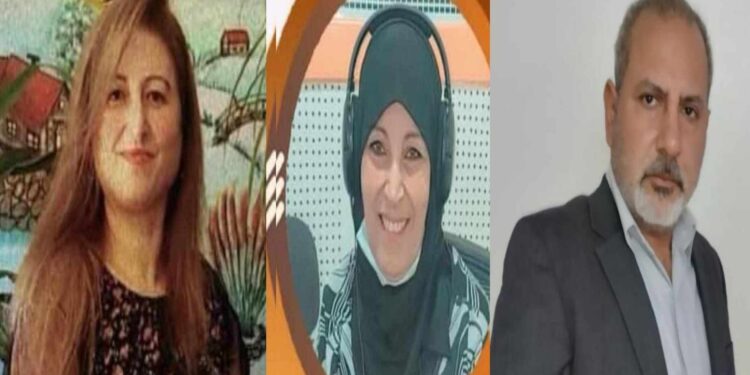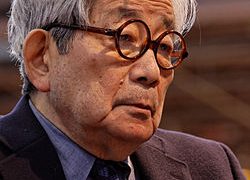قراءة نقدية وفق مقاربة سيميائية.
(قصيدة:”صومعة الروح”)
الشاعرة الهام عيسى(سوريا)
الناقدة: جليلة المازني(تونس)
التفريغ النصي: جمع في صيغة المفرد
المقدّمة:
لقد خاض العديد من الشعراء العرب القدامى والمحدثين في الكتابة في موضوع الحبّ بكل أشكاله وأنواعه والشاعرة الهام عيسى لم تشذّ في ابداعها عن هؤلاء الشعراء فقد خاضت معركة الحبّ في أشعارها وتنوّع مفهوم الحب في ابداعها الشعري وها هي اليوم تطالعنا بنوع من الحبّ مختلف في قصيدتها”صومعة الروح”.
عن أيّ نوع من الحُبّ تتحدّث الشاعرة الهام عيسى في قصيدة “صومعة الروح”؟؟؟
القراءة النقدية وفق مقاربة سيمياية:
القصيدة:”صومعة الروح”
لقد اختارت الشاعرة عنوانا لقصيدتها “صومعة الروح” وهو مركّب اضافي فالمضاف صومعة والمضاف اليه الروح. والعنوان يتناصّ مع عنوان صحيفة فكر(ثقافية /ادبية /اخبارية) ل:عصمت شاهين دوسكي(1).
– الصومعة جمع صوامع” الصوامع هي تراث اسلامي متفرّد يحمل معاني التوحيد وتشرئبّ في ثبات وقوّة الى السماء “(2).
فالصومعة سيميائيّا لها دلالات الصعود والسموّ والرّفعة.
لقد ورد بالقرآن الكريم الاية 40 بسورة الحجّ “الذين أخرجوا من ديارهم بغير حقّ الاّ أن
يقولوا ربّنا الله ولولا دفع الله الناس بعضهم ببعض لهُدمت صوامع وبيع وصلوات ومساجد يذكر فيها اسم الله كثيرا ولينصرنّ الله من ينصره ان ّ الله لقويّ عزيز.”
– الرُوح في القرآن :لفظ الروح ورد في القرآن على عدّة معان منها معنى الحياة التي يكون بها قوام الكائنات في قوله تعالى الآية 85 بسورة الاسراء”ويسألونك على الروح قل الروح من أمر ربّي” وقد فُسّر (الروح) في الآية هنا على أنه العنصر المركّب في الخلق الذي يحيا به الانسان(3).
وبالتالي فان الشاعرة منذ العنوان اعتمدت معجمية دينية هذه المعجمية الدينية ستغطّي كامل القصيدة وطبعا سنقف على دلالتها.
استهلّت الشاعرة قصيدتها بفعل مزيد على وزن انفعل ويفيد المطاوعة وورد في صيغة المضارع المرفوع الذي يفيد الاستمرارية ( تنساب)وانساب في الكلام أفاض فيه واندفع دون تفكير.
ان الشاعرة تحدّثنا عن الحبيبة وهي تصف حبيبها.
لقد شبهت الحبيبة كلامه في انسيابه تشبيها بليغا دون اداة تشبيه فتساوى كلامه بالماء السلسبيل و”السلسبيلا” هي عين بالجنة ماؤها سلس في البلْع وبهذا المعنى جاء قوله تعالى في وصفها(“عينا فيها تسمّى سلسبيلا”:18سورة الانسان).ان الشاعرة تجعل الحبيبة تعيش لحظة حنين الى حديث الحبيب الذي يروي عطش روحها اليه.
منذ البيت الاوّل تكشف الشاعرة عن نوع الحبّ الذي تُكنّه الحبيبة لحبيبها انه الحبّ الروحي حين تقول: تنساب حروفك سلسبيلا
يروي ضمأ الروح
في فيء خطى الحبّ والحنين
للحب اربعة أنواع:حبّ العقل/حبّ القلب/حبّ العشرة/حبّ الروح.
ان حبّ الروح أقوى وأشرس هذ الأنواع وأندرها وأصعبها وهو ما يسمّى بالعشق
فما هو الحبّ الروحي بين المرأة والرجل /بين العاشقة والمعشوق؟
“الحبّ الروحي بين المراة والرجل هو التقاء بروح تشبهك هو حدث واحد في الحياة..روح هي مرآة لروحك تحبّها ..ومهما بعدت المسافات لا يهزّها سوى لوعة الاشتياق.
فالروح اذا ملكتْك ملأتْك
واذا آوتْك داوتْك
واذا أحبّتْك أحيتْك “(4)
ان حبّ الروح لا يعرف كلمة “الوداع”
يقول جبران خليل جبران في تمجيده للحبّ الروحي وجبران خليل جبران موسوم بحبّه الروحي للأديبة ميّ زيادة وهي تبادله نفس الحبّ الروحي:
والحبّ في الرُّوح لا في الجسم نعرفُه** كالخمر للوحْي لا للسكْر ينعصرُ.
ان الشاعرة تجعل الحبيبة تعيش لحظة حنين الى حديث الحبيب الذي يروي عطش روحها اليه.تقول الباحثة (كريستين باتشو) :
“لن يجلب الحنين دائما الشعور بالدفء ولذلك من الطبيعي ان تشعر بالحزن او الانزعاج عندما تفكر في ذكريات معيّنة..اهمّ شيء يجب تذكُره انه من المستحيل العودة بالزمن الى الوراء وتغيير ماضيك لكن يمكن تغيير الطريق التي تفكّر بها بشانه”(5) .
كأني بالشاعرة باستعمال أفعال بصيغة المضارع الذي يفيد الدوام والاستمرارية
تُخْرج معنى الحنين من زمن الماضي ليستمرّ في الحاضر ويصطبغ بمشاعر الشوق.
فتُحوّلُ الحنين الى شوق والحنين لا يكون الا للاشياء التي لا يمكن ان تعود بينما الشوق يمكن لتلك الاشياء ان تعود وبذلك تنتشل الشاعرة الحبيبة من برودة يأس الحنين الى حرارة رجاء الشوق.
تواصل الشاعرة وصف شوق الحبيبة لسماع صوت حبيبها الذي تشبّهه بالأنهار في انسيابه وتدفّقه بل تعتبره لحنا يدوّي بمسامعها فيُطْربها فتشعر انها في عيد بما يغمرها من فرح الى ان يتحوّل الى لحن ملائكي فتنتشي بصدى همْسه ليأخذها الى “بعيد بعيد” من الأحلام وتشاركها نجوم السماء هذه الفرحة .
والنجوم مصدر الضياء والعلوّوهذا له دلالته المعنوية فان حبّها نور في علوّه وضيائه هذا الضياء والسموّ قد غازلا نبضات قلبها وعانقا روح الحبيب في “صومعة العشق “والعشق هو أرقى درجات الحب انه الحبّ الروحي الذي جعل منهما توأما حقيقيا انها أحبّت روحا تشبهها من نفْس واحدة باختلاف الاجساد انهما مثنّى بصيغة المفرد.
انه الجمال الروحي الذي تراه…انها جاذبية الروح التي لاينطفئ بريقها.
ان الشاعرة باسم الحبيبة تقدّس هذا العشق وهو الحبّ الروحي حين جعلت روح المعشوق
في صومعة العشق والصومعة هي للعبادة فروح المعشوق هي معبودها ومن ثمّ جاء عنوان القصيدة”صومعة الروح” في سموّالصومعة وعلوّها وفي طهارة الروح ونقاوتها .
ان الشاعرة تجعل العاشقة تتحدّث عن نبضات قلبها بالتوازي مع روح المعشوق لعلّ هذا التوازي ينْحتُ ملامح الندّية بين العاشق والمعشوق ولعلّها تريد ان تقنعنا بالمعادلة بين الحبّ بالقلب والحبّ الروحي فتقول:تتراقص نجوم السماء فرحا
تغازل نبضات قلبي
تعانق روحك في صومعة العشق
والشاعرة هنا جمعت بين نوعين من الحبّ:الحبّ بالقلب والحبّ الروحي.فهل لهذا الجمع دلالته حين يتكرّر في غضون القصيدة ؟
ان الشاعرة تمنح العاشقة فرصة الخطاب الى معشوقها لتصفه بالناسك والناسك في المصطلح الديني هو الشخص المعتكف على عبادة الله عزّ وجلّ وتوحيده والملتزم بأداء
ما فرض عليه من عبادات فتفاجئنا الشاعرة بان جعلت هذا الناسك هو متعبّد ولكن في “محراب الهوى” (علما وان المحراب في المسجد يشير الى الاتجاه الذي يجب ان يقف فيه المسلمون أثناء الصلاة). انها مفارقة تتقاطع في أنّ كلاّ منهما يعشق المعبود (الله/المعشوق)
لقد استعملت الشاعرة أفعالا في صيغة الأمرولايمكن للأمر في هذا السياق من القدسية للمعشوق الاّ أن يدلّ على الالتماس فالعاشقة تلتمس من معشوقها أن يفتح نوافذ روحها لتتحرّر وتخرج وان يحلّق في سمائها ليقتربا أكثر وليصلّيا ولكنها صلاة في “هيكل الحبّ”
في المحراب الجديد وهو “محراب الهوى” والشاعرة استعملت ضمير المتكلم الجمع لتقنعنا
بأنّ العاشقيْن مُنخرطان في نفس عبادة الهوى(لنقترب أكثر/ لنصلّي بمحرابنا الجديد) بل يتبادلان العشق فكلاهما عاشق وكلاهما معشوق.
تواصل الالتماس منه بصيغة الامرفتقول: أنزل كالمزْن…
أمطرغيْثا…أبحرْ نحو مرفئي
حيث الحلم السرمديّ المكنون…
بكلّ جزء منّي.
انها تشبّه نزوله عليها بالمزن والمزن هو السحاب الممطر اوما يؤدّي الى سقوط مطروقد ورد في الآية 69 من سورة الواقعة “أأ نتم أنزلتموه من المزْن أم نحن المنزلون”.
والعاشقة تلتمس منه ان يمطر غيثا علْما وأن الغيث تتْبعه صفة النافع فالغيث النافع هو تطهير الروح من كل الأدران وهي بالتالي حياة جديدة طاهرة ونقيّة تجسّد حلمها الابديّ المكنون في كل جزْء منها انه حلْم الاقتراب من بعضهما البعض أكثر وهو ما تتوق اليه” بكل جزء منها ” .
وهل أكثر من أن تلتمس منه ان يأخذها من “الوتين الى الوتين” والوتين أقوى وأكبر شرْيان بالقلب وهل توحي لنا هذه الصورة الشعرية في ارتباط وتينها بوتينه وتعزّز ذلك بقولها
“كل نبضاتي تنتفض تقودني اليك” هل توحي لنا الشاعرة وتذكّرنا بما ذهبنا اليه سابقا بنوع آخر من الحبّ؟
لعلّه حبّ القلب وهو الحبّ الذي يخفق فيه القلب لرؤية المعشوق واسمه وصورته ويتألّم لقسوته وابتعاده.
هل الشاعرة أرادت أن تضفي على حبّ العاشقة شيئا من المرونة وتعيدها الى آدميّتها اعترافا منها بدور القلب في الحبّ هذا الدور للقلب الذي ذكرته العاشقة في مقطع سابق
من القصيدة حين قالت “تتراقص نجوم السماء فرحا//تغازل نبضات قلبي”
وأكثر من ذلك فهي تخصّ بالسلام لعينيه و ثرى حرفه وعطاء يديه فهل يمكن لهذه العاشقة التي استماتت في احتوائها للحبّ الروحي ان تنزل الى الحبّ الجسدي والحبّ الفكري(من خلال ابداعه الشعري) حيث ان ابداعها الشعري الذي يتشاركان فيه جعلها تبوّئ اسمه لترتّله ببيت القصيد وبيت القصيد هوأحسن أبيات القصيدة وأنْفسها وهوالبيت المتضمّن
غاية الشاعر(معجم المعاني الجامع).تقول الشاعرة:
سلاما لعينيك..وثرى حرفك وعطاء يديك.
من قناديل عيون الشعر
أرتّل اسمك ببيت القصيد
سأنقش اسمك
في مواسم التصعيد والتعبيد
ان غاية الشاعرة ان ترتّل اسمه ببيت القصيد بل وتنقش اسمه في مواسم التصعيد والتعبيد
وهي مواسم العلوّ و التسامي ومواسم التعبيد الذي هو حكرلله وحده.
لماذا هي تلحّ على اسمه فهل اسمه يستهويها ويثيرها ويهفو قلبها اليه؟
هل تريد ان تحدّثنا بان قلبها يسير في خطّ مواز لروحه… انها تشبّهه بالترنيمة وعذوبتها وموسيقى الحضارة وشموليتها بل هو روح السلام المجيد وما فيه من طمأنينة نفسية وراحة بال وكل هذه المعاني النبيلة يرتّلها العاشقون وحبيبها أحد العاشقين.
انها “تتغزّل” بجمالية روحه فتقول الشاعرة:ترنيمة أنت..
موسيقى حضارة
روح السلام المجيد
يرتّلها العاشقون في كلّ حين.
بيد ان للجسد نصيب ايضا حين تقول”هات يديك يا حبيببي//لننزع الخوف..” انها العاشقة الجريئة والمبادرة…فلماذا تطلب يديْه ان لم تكن لتلتحم بيديها وتتشابك مع يديْه وأكثر من ذلك فهي باستعمال فعل مضارع مجزوم بلام الامر تلتمس منه ان ينزع الخوف فهي تشجّعه بذلك على ما تريد. فتقول الشاعرة:
هات يديك يا حبيبي
لننزع الخوف..
انها تعود لتلتمس منه ان يلتحم بسدرة المنتهى وهي شجرة سدر عظيمة تقع بالجنّة بالسماء السابعة وجذورها بالسماء السادسة ولها من الحسن ما لا يستطيع بشر ان يصفه كما قال الرسول وكما ذكرت الآية 15 من سورة النجم.
وشجرة السدرة في جمالها كناية عن العاشقة الجميلة خاصّة وهي تنسب هذه الشجرة اليها (سدرة منتهاي).وبالتالي فكأن العاشقة تغري المعشوق بجمالها و باستعمالها فعل “الْتحم” له دلالته الجسدية.
تقول: الْتحم بسدرة منتهاي.
بيْد انّ الشاعرة تعود لتذكّر العاشقة بحبها الروحي في قفلة للقصيدة كلّها تحدّ للقدرفتجعل العاشقة تجزم بضرورة الالتحاق باللوح المحفوظ واللوح المحفوظ حسب الكثير من المفسّرين هو الكتاب الذي كتب فيه الله مقادير الخلق قبل ان يخلقهم وهو الكتاب المُبين
المذكور في الآية59 من سورة الأنعام”وما تسقط ورقة الا يعلمها الله ولا حبّة في ظلمات الارض ولا رطب ولا يابس الا في كتاب مبين”فهل الكتاب المبين هو اللوح المحفوظ؟
والمعنى الحقيقي للّوح المحفوظ ورد في سورة البروج:”بل هو قرآن مجيد”(21)
“في لوح محفوظ”(22).
ان العاشقة تجزم بضرورة التحاقهما باللوح المحفوظ ولكن في نسخته الجديدة وكأني بها تلتمس تعديلا باللوح المحفوظ ليشملهما كعاشقين معشوقين فيتّسقا مع اللوح الجديد في حين ان محتوى اللوح المحفوظ قد كُتب قبل الخلق .
تقول الشاعرة: لا بدّ يوما نلتحق باللوح المحفوظ
نتّسق مع اللوح الجديد.
وهل أكثر جرأة وتحدّيا من ان تغيّر العاشقة قدرها ليتّسق مع قدر المعشوق؟؟؟
ان القصيدة قد طْبعت بمرجعية دينية فالشاعرة قد انتقت كلمات القصيدة حتى انّ كل كلمة منها تحيلنا الى مفهوم ديني بل وكما لاحظنا تعود بنا الى آية قرآنية.
ان هذا الحضور الديني المكثّف في القصيدة طبع الحبّ بالطابع الروحي وهو ما يسمّى بالعشق .
بيد ان هذا الحبّ الروحي نجده احيانا ينبض بنبضات القلب التي تهفو بالروح لتسري
فيها حرارة دفء الدم في الشرايين.(تغازل نبضات قلبي/كل نبضاتي تنتفض تقودني
اليك/ سأنقش اسمك/ خذني اليك من الوتين الى الوتين..)
واكثر من ذلك نجد احيانا ان هذا الحب الروحي تخالطه لمسات الجسد لتعيد اليه آدميّته
( ينساب صوتك يدوّي بمسامعي / لنقترب أكثر/ سلاما لعينيك/ وعطاء يديك/ هات يديك ياحبيبي/ الْتحمْ بسدرة منتهاي).
والشاعرة لم تسْتثْن الفكرو العقل من مجموعة مكوّنات الانسان(تنساب حروفك سلسبيلا/ ثرى حرفك / من قناديل عيون الشعر).
وفي هذا الاطار تخالجنا عدّة تساؤلات:
– هل هذا الصراع بين لغة الرّوح ولغة القلب ولغة الجسد ولغة الفكر والعقل والذي يعكس هذا التداخل بين انواع الحب يجعلنا نستنتج انّ العاشقة في صراع مع نفسها غايتها تغليب الروح على القلب والجسد والعقل؟
– هل ان الشاعرة باسم العاشقة تريد ان تُقنعنا بانّ الحبّ الروحي “يشمل جميع انواع الحبّ فيأسر عقلك وقلبك وجسدك وتفاصيلك ويظهرها في انسان واحد وهو فخّ لمن وقع فيه فلا
خلاص منه ولانهاية ولا ارتواء ولا شبع.. .لا مقاييس له ولا أسباب..لا يعترف بالقوانين
هذا الحبّ لا يفيد فيه عقل ولا منطق ولا يقتله هجر ولا قسوة ولا تضعفه مسافات”؟(6)
– هل من خلال هذا الصراع بين انواع الحب تريد الشاعرة ارساء حبّ متوازن يعيد العاشقة الى آدميتها؟
– هل الشاعرة تريد ان تعقلن الحبّ باعتبار ان “لا امام سوى العقل” على حدّ قول المعرّي
فيكون العقل حكما لاعادة التوازن بين الروح والقلب(العاطفة) والجسد باعتبار انّ الانسان
كلّ لا يتجزّأ؟ وباعتبار ان مكوّنات الانسان روح وقلب وجسد وعقل هي جمع بصيغة المفرد؟.
يعني: روح + قلب +جسد + عقل(4) = حبّ(1).
الخاتمة:
وخلاصة القول فلئنْ حاولت العاشقة أن تقنعنا بالحبّ الروحي الذي هو أقوى وأشرس
أنواع الحبّ وأندرها وأصعبها وهو ما يسمّى بالعشق الا أنّ الشاعرة الهام عيسى تدخّلت
لتنتشل هذه العاشقة من “شراسة” الحبّ الروحي بتضمين القصيدة مؤشرات لغوية تشي
بانواع من الحبّ تعيد للحبّ الروحي وعيه بها لنحْت ملامح الحبّ المتوازن لدى الانسان الذي هو كلّ لا يتجزّأ بروحه وقلبه وجسده وعقله…انها مكوّنات الانسان..
انّها مكوّنات وهي جمع بصيغة المفرد.
بقلم جليلة المازني
بتاريخ20/12/ 2023
المراجع:
https://elfik.org>(1)
صحيفة الفكر :صومعة الروح ل عصمت شاهين دوسكي.
https://www.oujdacity.net(2)
https://www.cilyolra.net2020(3)
لفظ الروح في القرآن الكريم
https://m.facebook.com>posts sad vncent4))
للحبّ أربعة أنواع.
(5) مواقع الكترونية الجزيرة”حلو ومرّ”…لماذا يشعرنا الحنين الى الماضي بالحزن؟ https://m.facebook.com>posts sad vncent6))
====قصيدة:”صومعة الروح”====الهام عيسى====
=== تنساب حروفك سلسبيلا
يروي ظمأ الروح
في فيْءِ خطى الحب والحنين
ينساب صوتك كالأنهار يدوي بمسامعي.
.. لحن هو عيد
لحن ملائكي ما زال يطربني
يأخذني صدى همسه لبعيد بعيد
تتراقص نجوم السماء فرحا
تغازل نبضات قلبي
تعانق روحك في صومعة العشق
يا أيها الناسك في محراب الهوى
افتح نوافذ روحي
حلق في سمائي واغزل اجنحة الشمس
لنقترب أكثر
.. لنصلي بمحرابنا الجديد
.. أنزلْ كالمزنِ
.. أمطر غيثا.. ابحر نحو مرفئي
حيث الحلم السرمدي المكنون
.. بكل جزء مني
خذني إليك من الوتين الى الوتين
يا قمري الساهر في غياهب السماء
كل نبضاتي تنتفض تقودني إليك
.. سلاما لعينيك..
وثرى حرفك وعطاء يديك
من قناديل عيون الشعر
أرتل اسمك ببيت القصيد
سأنقش اسمك
في مواسم التصعيد والتعبيد
..ترنيمة أنت
موسيقى حضارة
روح السلام المجيد
يرتلها العاشقون في كل حين
.. هات يديك يا حبيبي
لننزع الخوف
.. التحم بسدرة منتهاي
لا بدّ يوما نلتحق باللوح المحفوظ
نتّسق مع اللوح الجديد..
A critical reading based on a semitic approach.
(Poem: “The Cell of the Soul”)
The poetess Elham Issa (Syria)
Critic: Jalila El Mazni (Tunisia)
Translator: Awny Seif (Egypt)
Text description: Plural in singular form.
Introduction:
Many ancient Arab poets and modern have been engaged in writing on the subject of love in all its forms and kinds. The important poetess Issa has not deviated her creativity from these poets. The battle of love has been fought in her poetry and the diversity of the concepts of love in her writings.Here, she wrote about a different kind of love in her poem “The Cell of The Soul”.
What kind of love does important poetess Issa talk about in the poem “The Cell of The Soul”???
Critical reading according to semitic approach:
Poem: “The Cell of the Soul”
The poetess chose the title of her poem “The Cell of the Soul”, an additional composite. Noun plays as an adjective to another noun.The title has intertextuality with( a cultural, a literary and a news) a newspaper that has the same title of Ismat Shaheen Doski (1).
– Cell , in plural is Cells “Cells are a unique Islamic heritage bearing the meanings of The Oneism and stiffness to heaven” (2).
“The Cell” Semitically has the connotations of ascent, heaven and uplift.
The Holy Qur ‘an, 40 of Surah of The Pilgrimage,
[They are] those who have been evicted from their homes without right – only because they say, “Our Lord is Allāh.” And were it not that Allāh checks the people, some by means of others, there would have been demolished monasteries(Cells), churches, synagogues, and mosques in which the name of Allāh is much mentioned [i.e., praised]. And Allāh will surely support those who support Him [i.e., His cause]. Indeed, Allāh is Powerful and Exalted in Might.
– The Soul in the Qur ‘an: The Word of the Soul in the Qur’ an contains a number of meanings, including the meaning of life itself , in which the strength of the beings, as in the verse 85,Surah El-Asra “and they ask you about the soul, You say the soul is belonging to my Lord”. The meaning of “The Soul ” in Verse It is the composite element of creation, by which man lives.(3)
Thus, since the title, the poetess has adopted a religious lexicon which will cover the whole poem and of course we will stand on its connotation.
The poetess initiated her poem by a special present continuous verb in the Arabic Grammar ,it is benefiting the disinfectant. It was reflected in the form of the raised tense, which served as continuity (fluctuation) and an insolence in speech that overflowed it and rushed thoughtlessly.
The poetess talked about the sweetheart describing her lover.
The sweetheart likened his speech in his smooth way to an eloquent resemblance without analogy. His word is equal to the water of the heaven. The “Celsipella” is a spring of water in the paradise whose water is smooth to swallow. The poetess makes the sweetheart live a moment of nostalgia for the beloved who gives water her thirsty soul.
Since the First line in the poem, the poetess reveals the kind of love she feels to her lover. It’s a spiritual love when she says, “Your letters are flowing Celsipella.”( as a spring of water)
Gives water to her thirsty soul.
In the warmest footsteps of love and nostalgia.
Love four types: Love of Mind/Love of Heart/Love of Company/Love of Soul.
Love of the soul is stronger, fiercer, rarer and harder kind, so-called adoration.
What is spiritual love between women and men/between beloved and lover?
“Spiritual love between a woman and a man is a meeting with a spirit that looks like you is one event in life, a spirit that is a mirror of your soul that you love, and no matter how far away the distance shakes it only a glimmer of longing.
The soul if it took you,it fills you.
And if it made you patient, it gives you medicine.
If it liked you, it will give you life “(4)
Love of soul doesn’t know the word “goodbye.”
Jibran Khalil Jibran said in his glorification of spiritual love .He was in a spiritual love of the poetess Mai Ziadeh and she exchanges the same spiritual love:
“And love in the spirit, not in the body, we know it. * * Like vintage, not for drunk.”
The poetess makes the sweetheart live a moment of nostalgia for the beloved who gives water to her thirsty soul. Researcher Christine Pacho says:
“Nostalgia will not always bring a sense of warmth and it is therefore natural to feel sad or upset when you think about certain memories. The most important thing to remember is that it is impossible to go back in time and change your past, but the way you think about it can be changed.” (5)
It’s like I’m a poetess using actions in the form of a present continuous that benefits permanence and continuity.
It takes the meaning of nostalgia out of the past to persist in the present and coat in the feelings of longing.
Turning nostalgia into longing and nostalgia is only for things that can’t come back while longing for those things can come back and thus lift the beloved poet out of the coolness of nostalgia’s despair to the heat of the hope of longing.
The poetess continues to describe her beloved longing to hear the voice of her lover, she likens him to rivers in his streams and flows. She considers him to be a tune goes to her listening and expressing her feeling that she is on Eid with such joy as to turn into an angelic tune, ecstatic with his whispering to take her to “far away” from dreams and shared by the stars of heaven.
The stars, the source of the light and the top, they have moral connotation. Her love as light in his loft and light. This light and heaven flirted with her heartbeat and hugged the soul of the lover in the “Cell of adoration” and adoration is the finest degree of love.
It’s the spiritual beauty you see — it’s the allure of a soul whose glamour is not extinguished.
The poet instead of beloved, she sacred this love, which is spiritual love when it made the soul of the loving in the Cell of Adoration and The Cell is for worship, the soul of the loving is its idol. The title of the poem, “The Cell of the Soul”, is then in the higher value and its top and in the purity and purity of the soul.
The poetess makes the lover talk about her heartbeat in parallel to the soul of the lover. Perhaps this parallel carves out the features of the appeal between the lover and the adoring and may want to persuade us to equate love with heart and spiritual love.She said the stares dance happily.
Flirting with my heartbeats.
Embrace your soul in the cell of adoration.
And the poetess here combined two kinds of love: love with heart and spiritual love. Is this collection meaningful when it is repeated within the poem?
The poetess gives the beloved the opportunity to speak to her lover to describe him as the hermit. The hermit is a religious term who is the person as monk ,who engaged in the worship of Allah( The God)The Almighty, with his unity and is committed to performing the religious instructions.The poetess surprised us when she made this hermit a worshipper, but in the “The sanctuary of love” (the sanctuary in the mosque indicates the direction in which Muslims should stand during prayer). It is a paradox that intersects that both adore the idol (God/lover)
The poetess has used actions in the verb form of the order. In this context of the Holiness of the Lovers, it can only indicate the petition. The beloved asks her lover to open the windows of her soul to liberate and come out and fly into her skies to get closer and pray, but it is a prayer in the “Temple of love.”
In the new sanctuary, “The Temple of Love”, the poetess used the subject pronoun of the plural as speaker to convince us that the lovers are engaged in the same worship of fondness (let’s get closer/pray in our new temple) but exchange adoration, both beloved and both lovers.
The poetess continue to petition him in the form of the order, she says: Come down like rainy clouds.
Rrain heavily… sail towards my harbour
Where the everlasting dream…
Every part of me.
It is like coming down with a rainy clouds, or it leads to the fall of a dislodged, and it is stated in verse 69 of the Holy Koran Surah El- Wakaa “Is it you who brought it down from the clouds, or is it We who bring it down?”
The lover asks him to rain down on heavily, knowing that heavy rain in the religious context is followed by a beneficial quality. The beneficial abstract is to cleanse the soul of all sins and is thus a clean and pure new life whose eternal dream is embodied in every part of it is the dream of getting closer to each other, which is “every part of it”.
Is it too much to ask him to be near to take her from ” Aorta Artery to another” it is Arabic symbol for closeness. Aorta Artery is the strongest and greatest artery of the heart? Does this poetic image suggest and reinforce the attachment of bodies and souls? She said:
“All my beats rise, lead me to you.” Does the poet suggest and remind us of what we went to before with another kind of love?
It may be the love of the heart, the love in which the heart beats to see the lover, his name, his image and his pain for his cruelty and his distance.
Did the poet want to give the love of the lover some resilience and return her to her humanity in recognition of the heart’s role in love with the heart mentioned by the lover in a previous paragraph.
From the poem when she says, “The stars of heaven dancing in joy//Flirting with my heartbeat”
What’s more, it’s about greetings for his eyes, affluence for his letters of his name, and giving of his hands. Can this beloved who desires to contain spiritual love come down to physical love and intellectual love (through his poetic creativity), where her poetic creativity in which she share his name as a religious song to relate to the poem, especially ,the important poem’s line.
The aim of the poet (the all-inclusive dictionary of meanings). The poet says:
Peace for your eyes, the richness of your letter and the giving of your hands,
From lights of the eye of poetry,
I utter your name as important line in my poem.
I’ll engrave your name.
In the seasons of escalation and worshiping.
The poet’s intention is to send his name to the important line and even inscribe his name in the seasons of escalation and worshiping.
They are the seasons of higher values, sublimation and the seasons of worshiping that belongs to God only.
Why does she insist on his name? Is his name appealing to her, provoking her and blowing her heart to him?
Do she want to talk to us that her heart is on a parallel line to his soul… She likens it to the hymn, its torment, the music of civilization and its inclusivity. It is the spirit of glorious peace and its psychological reassurance and peace of mind.All the noble values which were sung by lovers.
She’s “flirting” with the aesthetic of his soul, and the poet says:
you are a hymn,
Civilization Music,
The Spirit of Glorious Peace,
Lovers sing it all the time.
But the body also takes a part of her poetic status when she says, “Baby, let’s me take your hands to remove out the fear.” She’s the bold beloved and the initiative… why would she ask his hand if she wouldn’t have fitted her hands and tangled his hands? The poet says:
Give me your hands, sweetheart,
Let’s take the fear out.
It comes back to ask him to join Sidra Al-Montah, a great Siddar tree located in heaven with the seventh sky and its roots in the sixth sky, and it has a beauty what good human beings cannot describe as the prophet said and as the 15 verse of the Holy Koran of Surah the Star stated.
The Sidra tree in its beauty is as a special beautiful beloved and she is attributed to it (Sidra Manthai). It is thus that a lover is tempted by her beauty and by her use of the act of “shielding”, which has physical significance.
She says, “Shield with my sidra(heavenly tree)!!
However, the poetess goes back to reminding the lover of her spiritual love at the end of the poem, all of which is a challenge to destiny, making the lover assert the need to join( The preserved board) and the preserved board according to many interpreters is the book in which God wrote the destinies of creatures before creating them, in Holy Board.
In verse 59 of the Holy Koran Al-Anaam, “. And with Him are the keys of the Ghaib (all that is hidden), none knows them but He. And He knows whatever there is in the land and in the sea; not a leaf falls, but he knows it. There is not a grain in the darkness of the earth nor anything fresh or dry, but is written in a Clear Record.
The true meaning of the preserved board is stated in the Holy Koran: “It is a glorious Koran” Surah Broog(21)
“In a preserved board” .22
The lover asserts that they should be enrolled in the preserved board, but in his new version, as if they were seeking an amendment to the preserved board to include them as adoring lovers, they are consistent with the new board while the preserved board content was written before creation.
The poetess says, “We must join the preserved board.”
We align with the new board.
Is it bolder and more challenging to change a lover’s destiny to be with her in her destiny?
The poem has been coloured with religious authority. The poetess has chosen the words of the poem so that each word turns us into a religious concept and, as we have observed, returns us to a Quranic verse.
This intense religious presence in the poem coloured love spiritually, so-called adoration.
However, this spiritual love sometimes finds it beating in a heartbeat that raves the soul to run with the blood warmth heat in the arteries. (flirting with my heartbeat/all my pulses rise leading me,I’ll engrave your name/Take me to you from artery to artery.)
And more than that, sometimes we find that this spiritual love is mixed with the touches of the body to restore its humanity.
(Your voice goes to my ears /Let’s get closer/greetings to your eyes/Give your hands/give me your hands, sweetheart/Come close to my Sidra El-Montha..)
The poet did not exert the intellectual mind from the set of human ingredients (the descent of your letters Spring water/the enrichment of your letter/from the light of eyes of poetry).
In this context, we have several questions:
– Is this conflict between spirit language, heart language, body language, thought language and mind that reflects this overlap between love types makes us conclude that a lover is in conflict with herself for the purpose of dominating the soul over the heart, body and mind?
– Does the poet in the name of the lover want to convince us that spiritual love “encompasses all kinds of love and captures your mind, heart, body and details and shows it in one human being and is a trap for those who fell into it.She can not
get rid of it, no end, no twist, no satiety.
This love has no mind, no logic, no abandonment, no cruelty and no distancing “? (6)
– Through this struggle between love types the poet wants to establish a balanced love that brings the lover back to her humanity?
– Does the poet want to make sense of love by considering that “there is no mind but mind” in the words of the ancient poet El Ma ‘rae.
The mind is judged to restore the balance between the soul, the heart (emotion) and the body as man.
All indivisible? Given that the human ingredients of soul, heart, body and mind are combined in singular form?.
Means: Soul + Heart + Body + Mind (4) = Love (1).
In sum,
when a lover tries to convince us of spiritual love, which is stronger and fiercer love types, rarity and hardest, so-called adoration, but the important poetess Issa intervened to lift this lover out of the “ferocity” of spiritual love by including in the poem indicators of linguistic symbols with kinds of love. Spiritual love restores its consciousness to the features of a balanced love of man, who is all that is indivisible in his soul, heart, body, mind… they are the ingredients of man.
They are ingredients and they are combined in singular form as man.
By Jalila El Mazny
dated 20/12/2023
References:
https://elfik.org>(1)
Newspaper of Thought: The Soul Cell of Ismat Shaheen Dosky.
https://www.oujdacity.net(2)
https://www.cilyolra.net2020(3)
The Word of the Spirit in the Holy Quran
https://m.facebook.com>posts sad vncent4))
Love is four kinds.
(5) Island websites “bittersweet…” Why is nostalgia grieving? https://m.facebook.com>posts sad vncent6))
= = = Poem: “The Cell of the Soul” = = = = Elham Issa = = = =
= = = Your letters are flowing as spring water,
It gives water to thirsty soul.
In the shadows of footsteps of love and nostalgia
You voice like rivers to my ears.
.. Tune is Eid ( as Christmas)
An angelic tune is still affecting me.
It takes me to resonate with his whisper for far and far away.
The stars of the sky dancing with joy
Flirting with my heartbeats
Embrace your soul in the cell of adoration
Hey, the hermit in the temple of love.
Open My Soul Windows
Fly into my sky and spin the sun’s wings
Let’s get closer.
.. Let’s pray with our new temple.
.. Go down like a heavy rain.
.. Rain heavily… Sail towards my harbour
Where the Empowered everlasting Dream
.. Every part of me.
Take me from artery to artery.
Mighty lunar moon in the heavens.
All my pulses rise lead me to you.
.. Peace and greetings to your eyes.
The richness of your letter and the giving of your hands
From The light of the eye of poetry.
I’m singing your name to the important line in my poem.
I’ll engrave your name.
In the seasons of escalation and worshiping
You chant and hymn
Civilization Music
The Spirit of Glorious Peace
Lovers chanting it all the time.
Give me your hands, sweetheart.
Let’s take the fear out.
.. Come close to my Sidra El montha.
We have to join the preserved board.
We align with the new board.










Discussion about this post